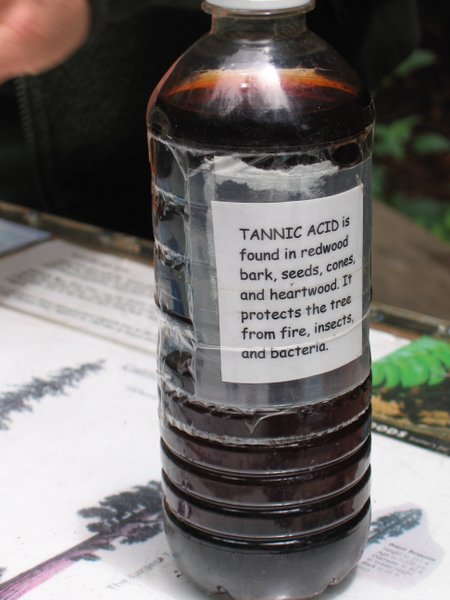For centuries, metal corrosion has been a major challenge faced by industries globally. Corrosion is not only aesthetically unappealing but also reduces the overall performance and lifespan of the metal. While modern technologies have led to the development of several corrosion prevention techniques, one solution that has stood the test of time is the use of tannic acid on steel. In this blog, we delve into the thesis of tannic acid and explore how it can be used to prevent corrosion on steel.

Tannic acid is derived from various plants, including oak bark, Sumac, and tea leaves. It is an aromatic organic compound and belongs to the family of polyphenols. Tannic acid is soluble in water, alcohol, and other organic solvents. Its unique properties make it ideal for use in the steel industry as a corrosion inhibitor.
Tannic acid works by forming a protective film on the surface of the steel, which prevents the onset of rust. When exposed to air and moisture, steel oxidizes, leading to the formation of rust. However, when tannic acid is applied to the surface of the metal, it reacts with the iron ions to form a complex compound that acts as a barrier between the metal and the elements in the environment. This barrier prevents the diffusion of moisture and oxygen, thus stopping the corrosion process.
Several studies have been conducted to validate the effectiveness of tannic acid on steel. In the 1884 thesis conducted by the Illinois Industrial University, the efficacy of tannic acid on steel was tested using a salt spray test. The results showed that tannic acid was able to protect the steel from corrosion for up to four weeks.
Tannic acid can be applied to steel using various methods, including dipping, spraying, and brushing. However, the effectiveness of the application method depends on the type of steel and the conditions it is exposed to. For instance, dipping is more effective for small parts such as bolts and screws, while spraying is ideal for large surfaces.
In conclusion, tannic acid is a natural and cost-effective solution for preventing corrosion on steel. Its unique chemical properties make it an efficient inhibitor of rust formation. Although other modern technologies for preventing corrosion have emerged, tannic acid on steel remains a viable solution for the industrial sector. If applied correctly, tannic acid can extend the lifespan of steel components, save money on maintenance and replacement costs, and improve the overall performance of steel products. It continues to be a solution worth considering for corrosion prevention.